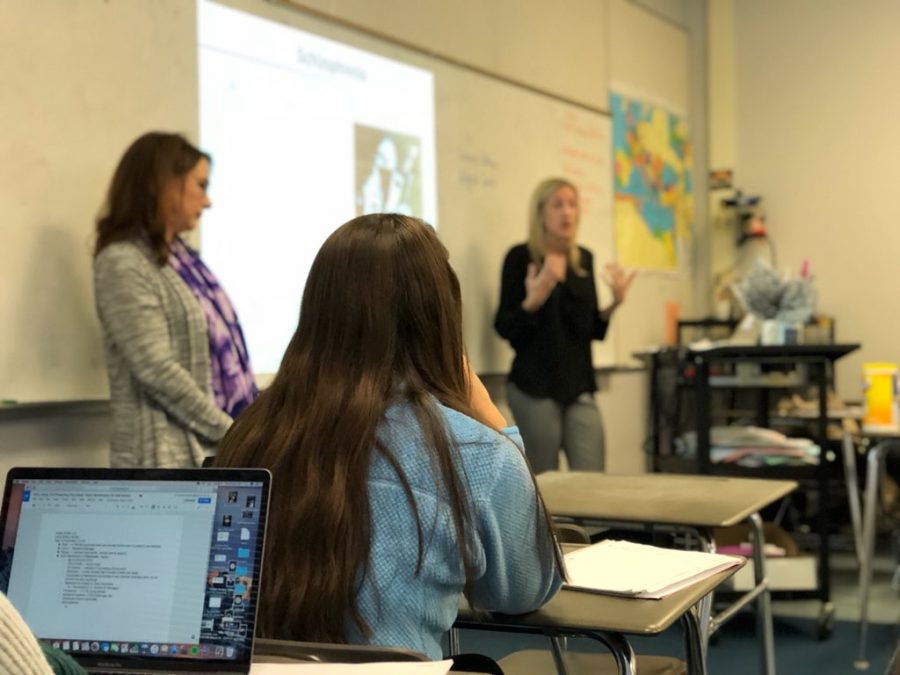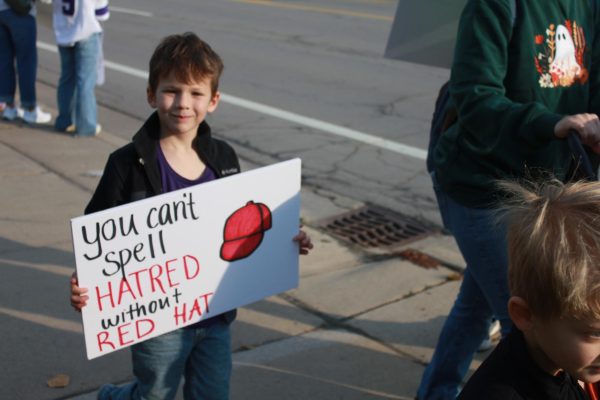University of Michigan’s Program for Risk Evaluation and Prevention (PREP) at CHS
On March 7, 2018, Laura Stchur and Alyssa Smith presented to Robbie Stapleton’s Advanced Health/Public Policy class. Stchur and Smith are a part of the University of Michigan Program for Risk Evaluation and Prevention (PREP). Both of them are on PREP’s Research Team. PREP is a program that provides students with education, assessment, referral, treatment, and research of early psychosis. Stchur and Smith’s presentation was about psychosis: “Preventing Psychosis: Early Identification & Intervention.”
Stchur started off by introducing herself. She explained what she does at the University of Michigan and what PREP is. She then introduced Smith and explained her role. Smith attended Grand Valley State University for undergraduate degree, went to Boston to get her graduate degree, and finally participated in a program similar to PREP. She later moved back to Michigan, and has been a part of PREP since 2016.
Smith passed out photocopies of the slides that she was presenting to the class. She began by asking a simple question, “Which of the following are more common? Depression, anxiety, or early psychosis?” This got the class engaged and communicating; Smith settled the dispute and revealed the answer: depression/anxiety.
Depression and anxiety are far more common than early psychosis, but that doesn’t mean they are better or worse, just different. Smith explained the differences between them using an analogy for a fever. Often, individuals with depression and anxiety can experience similar symptoms to those with psychosis. Similar to how people with fevers can have different illnesses. Just because someone has the same symptom, doesn’t mean they have the same diagnosis.
This segwayed into her next topic: schizophrenia. Smith and Stchur talked about topics ranging from the phases of schizophrenia, to early identification of schizophrenia, to what doctors to do treat these diseases.
Smith first discussed the differences between schizophrenia and psychosis.
“Psychosis is when you have doubt about the experiences, but schizophrenia is when they are convinced that what they’re experiencing is real,” Smith said. “They might hear a garage door open in class, a dog barking when they’re with their friends, or their name being called when they’re alone.” One student, Jorge DiGiovanni, read aloud a fictional scenario regarding psychosis from the slideshow. This short story helped to better demonstrate what one might be feeling while experiencing a psychosis episode.
Throughout the entire discussion, the students were engaged and respectful. They were very intrigued by a lot of the new information being thrown at them. To end the session, Smith offered PREP brochures.The brochure showcased where students can access help if they are noticing signs of early psychosis, what Attenuated Psychosis Syndrome is, and additional resources.
The next presentation in the Advanced Health/Public Policy class is March 15, 2018.









